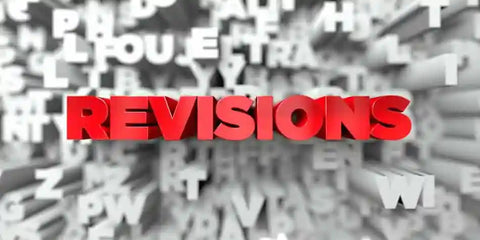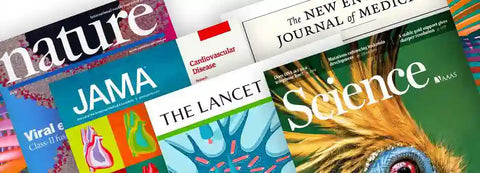The Beneficial Process of Editorial Criticism and Authorial Revision | Tips on How to Get Your Research Published
It is perhaps rare for scientific and academic authors to see the criticism of their writing offered by acquisitions proofreaders as part of a positive process, especially if the problems highlighted by that criticism are preventing a manuscript from being published. However, when viewed in the best light and used to its full potential, this kind of feedback can in fact be the beginning of an extremely beneficial process for both the rejected manuscript and its author. Even a brief assessment of the critical possibilities will suggest how much good can come of the challenges facing the scholarly author who is working towards successful publication.
• Criticism of content by qualified proofreaders and peer reviewers can focus an academic or scientific author’s attention on issues that he or she had not considered before, and the result can be a more effective presentation and analysis of the research.
• Criticism of language tends to highlight errors, awkward constructions, confusing explanations, undefined uses of obscure terminology and many other elements that mar a report of otherwise sound research. If these problems are present in a scholarly author’s writing, he or she needs to know about them and correct them in order to communicate research with precision and sophistication.
• In cases of problems in content or language, it is essential to remember that publishing poorly written or unsound scholarship can be detrimental to a successful academic or scientific career. The painful process of having the problems identified and working to fix them before publication is therefore absolutely necessary for any serious scholar.
• Many authors do not proofread, edit and revise their own writing enough to describe their research with absolute accuracy, refine the textual presentation of the ideas they explore and develop, or recognise that there may be entirely different and more effective ways of presenting the same information. Learning to see one’s own writing as changeable – a woven text that can be unravelled and rewoven – is a valuable experience for any scholar who plans to be a serious author as well.
• Criticism earned by neglecting to follow with precision and consistency the publisher guidelines or author instructions regarding manuscript structure, editorial styles, documentation methods and many other elements of academic and scientific prose can force even the most reluctant author to examine those guidelines closely and figure out how to apply them properly. This is a productive exercise for any aspiring author.
• When an author responds to editorial criticism by assessing and revising his or her writing in the hope of resubmission and ultimate acceptance, communication with the press is usually necessary. Communicating with proofreaders about your own writing in an objective and flexible way that benefits your work while addressing the publisher’s concerns can be a challenging act of diplomacy. Experience is the best teacher here, and what you learn will serve you well in future situations.
• Finally, in many cases the feedback of acquisitions proofreaders and peer reviewers must be analysed, the manuscript assessed and revised as well as proofread and edited, and correspondence about changes and resubmission negotiated with a publisher within an extremely short period of time. The deadlines may approach very quickly, especially for a scholar with an already busy schedule, but working under pressure to short deadlines is another excellent skill to master and then apply to many aspects of a successful academic or scientific career.
Why Our Editing and Proofreading Services?
At Proof-Reading-Service.com we offer the highest quality journal article editing, dissertation proofreading and online proofreading services via our large and extremely dedicated team of academic and scientific professionals. All of our proofreaders are native speakers of English who have earned their own postgraduate degrees, and their areas of specialisation cover such a wide range of disciplines that we are able to help our international clientele with research editing to improve and perfect all kinds of academic manuscripts for successful publication. Many of the carefully trained members of our manuscript editing and proofreading team work predominantly on articles intended for publication in scholarly journals, applying painstaking journal editing standards to ensure that the references and formatting used in each paper are in conformity with the journal’s instructions for authors and to correct any grammar, spelling, punctuation or simple typing errors. In this way, we enable our clients to report their research in the clear and accurate ways required to impress acquisitions proofreaders and achieve publication.
Our scientific proofreading services for the authors of a wide variety of scientific journal papers are especially popular, but we also offer manuscript proofreading services and have the experience and expertise to proofread and edit manuscripts in all scholarly disciplines, as well as beyond them. We have team members who specialise in medical proofreading services, and some of our experts dedicate their time exclusively to dissertation proofreading and manuscript proofreading, offering academics the opportunity to improve their use of formatting and language through the most exacting PhD thesis editing and journal article proofreading practices. Whether you are preparing a conference paper for presentation, polishing a progress report to share with colleagues, or facing the daunting task of editing and perfecting any kind of scholarly document for publication, a qualified member of our professional team can provide invaluable assistance and give you greater confidence in your written work.
If you are in the process of preparing an article for an academic or scientific journal, or planning one for the near future, you may well be interested in a new book, Guide to Journal Publication, which is available on our Tips and Advice on Publishing Research in Journals website.








